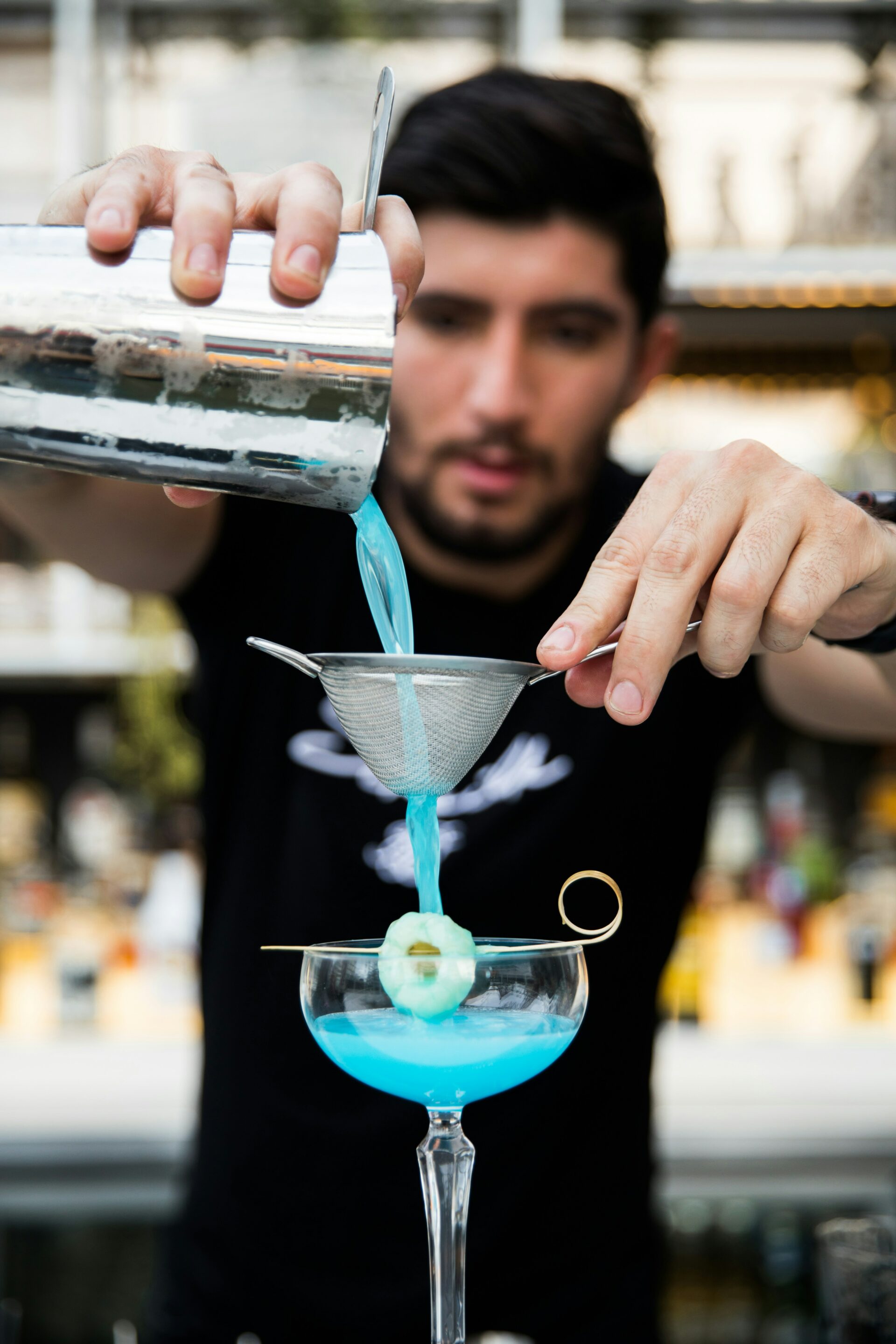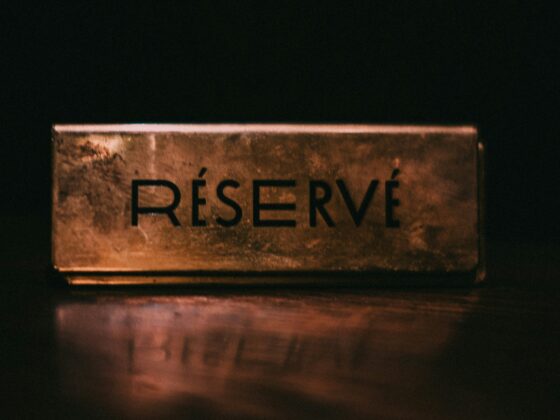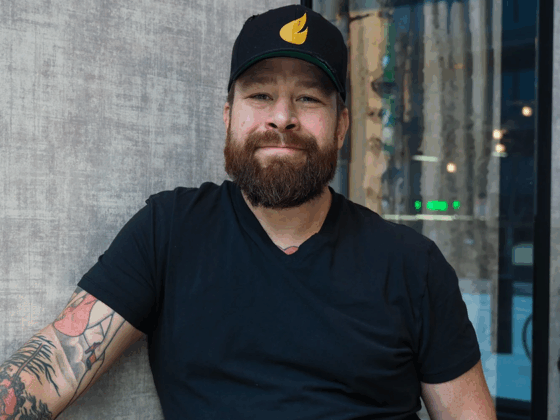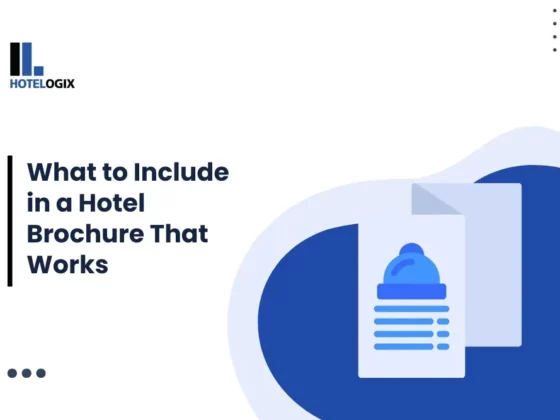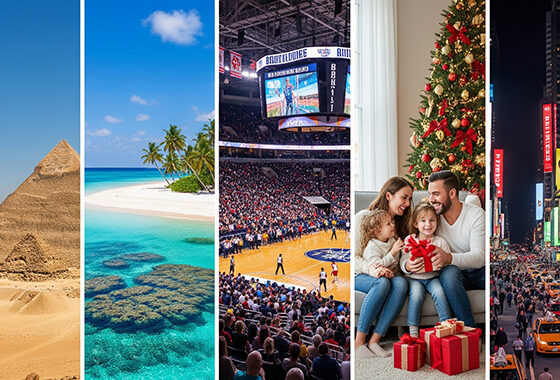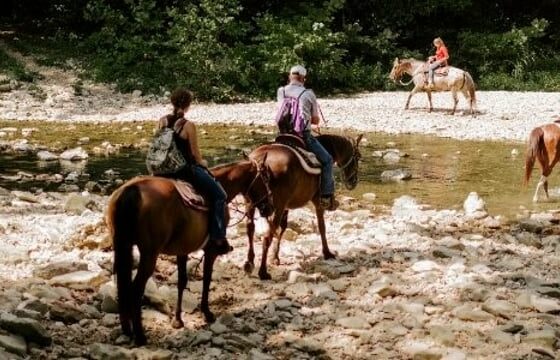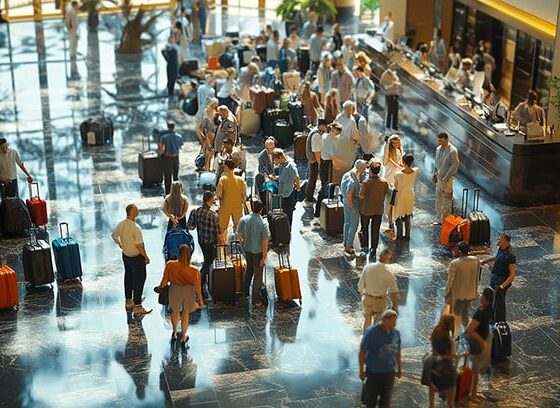Cycling can be a strenuous activity either for sport or for recreation. Especially road bicycle racing. To many professional cyclists the ultimate dream is to take part in the Tour de France. Cyclists while they race through beautiful locations need to show various skills to be a successful contender and take the yellow jersey. They need to excel in having good coordination skills, stamina, balance and perseverance.
One may think that winning the Tour is a solo pursuit. You cannot be more wrong. Apart from specifically optimised personal physical and mental qualities there is always a great team behind every winner.
Exactly like applying the wellbeing-minded hospitality approach at any hotel or resort. Creating and offering wellbeing improving services in a hotel is not a solo effort. It is a team sport. The intricacies of the Tour suggest a rather adaptable analogy to hoteliers who understand: this is a team sport and not an outsourced department.
Knowing Your Strategic Role
Riders often fall into different strategic categories or roles based on their strengths, team strategies, and race dynamics. Tour the France shows that although there is one Tour Winner, there many other winners as well – depending on objectives and roles.
Hotels’ take on wellbeing should apply a very similar approach. Every department has its own role and contribution. The guest may not remember every service or encounter of the stay, still can leave with improved level of overall wellbeing. And several departments can have their own wins alongside.
The Tour exemplifies that there are different roles running parallel, and each requires special qualities, strategies. Take a closer look, here are the main types of a Tour rider:
1. General Classification (GC) Contender
- The overall winner is the rider who has the fastest cumulative time across all stages. A GC needs to have some rather special strengths, such as excellent climbing skills and needs to be a solid time trialist. This is the ultimate title: the GC is entitled to wear the yellow jersey.
- The hotel does not need to be a ‘wellness hotel’ to become a GC. A GC in hospitality is the hotel/resort that has a clear property/brand wellbeing-specific DNA. Apart from the overall wellbeing-aware property and service design it also has areas which qualify as exceptional, e.g. in F&B, leisure and recreation, spa or wellness.
2. Climbers and Punchers
- Climbers have a very specific role which can be critical to the GC. Climbers dominate mountain stages and they can also support GC leaders in the high mountains. They need to be light as well as fast on steep gradients. As one aspect of gratification of their special skills they can wear the polka dot jersey. Punchers, somewhat similarly to climbers excel on short, steep climbs and rolling terrain. They are known for explosive climbing and sprinting. But they will not be the final winner.
- There are certain departments/functionalities in every hotel that can play stellar role in the overall wellbeing of the guests. These can give the very much needed ‘punch’, can catalyse change that have impact on longer term on the overall provision. These can be certain room division attributes for example supporting better sleep, or wide variety of food and beverage alternatives for foodies. They can be the testbeds for innovative ideas that may or may not fit the expectations of the guests, or may or may not provide the expected results in the end. Any hotel can designate a climber or climbers department or function. The hotel does not necessarily need to be a wellness hotel to have a Puncher. The polka dot jersey in the hotel, for example can be given the team orchestrating the sleep arrangements.
3. Escapees / Breakaway Specialists
- In the Tour escapees get into early breakaways to win stages or get exposure. They are known for their endurance, opportunism, strong on rolling or medium-mountain terrain. Their efforts can make them contestants fighting for the Yellow Jersey.
- Hotels that define their wellness/wellbeing DNA that incorporates most or all departments and establish a W-suite along with C-suite are predestined to become escapees. Conscious and informed decisions about guests’ and staff’s wellbeing are the makers of an escapee.
4. Sprinters
- Even one flat sprint win during a Tour can mean the world to a cyclist. Wearing a Green Jersey for any length of the time is a great accomplishment. Sprinters train for years to be the fastest with explosive speed when the opportunity rises.
- A hotel can opt to be a ‘Sprinter’ for a short period of time in wellness. Early adopters of innovative sleep-enhancing technology or launch partners of smart mirrors facilitating in-room fitness, etc. all can qualify as a Sprint win.
5. Domestiques & Super-Domestiques
- Domestiques’ goal is to support team leaders (e.g. drafting, pacing, fetching water). The most important strength of domestiques is the extreme selflessness. Some of the super-domestiques may go for their own win.
- Literally every department can become part of domestiques. Guests’ overall wellbeing is influenced throughout the whole stay. Glossy spas or wellness spaces may not be the most important contributors to wellbeing. Scent in public spaces, wellophilic interior design, slow food provision, immersive fitness spaces, close integration of leisure, recreation with F&B, etc. all would be part of the domestiques. Humble approach to wellbeing gives hotels and resorts (and retreats, etc.) with wide range of engagement options with supporting attributes. One particular service or value proposition can benefit from the selfless support from the domestiques.
6. Time Trial Specialists
- Their role is to win individual or team time trials. Their aerodynamics and sustained solo power output make all the winning difference.
- Hotel with dedicated team for creating wellbeing-specific quick-wins would focus on innovating intangible wellness propositions. One-off retreat-style programming, pilot wellness packages targeting a niche segment (e.g. post-cancer treatment women in remission), etc. can bring in new segments, may test a new cooperation between the hotel’s teams with visiting practitioners (e.g. Women Only Introduction to Yoga Weekend at branded luxury property by the Red Sea).
It Is a Team Sport!
How do the above categories and roles come together to become a winner package?
Road bicycle racing is a team sport. It may not seem so obvious but taking the Yellow Jersey needs a coordinated team effort. A team running like a Swiss watch. Hotels need to decide which of the below teams they are racing in. With foresighted decisions the hotel may switch teams, or hires essential new team members for another team type time-to-time during the long race, which is market competition.
There is specific group dynamics to describe groups of riders during a Tour de France stage — not just in terms of roles, but how racers move and interact on the road (Note: A simplified Tour de France grouping is applied below – the real deal is a little more complicated).
1. Off the Back / Dropped
These riders can’t keep up and are left behind any group. This position could be temporary (they may revive and return) or permanent (they’re out of contention).
Hotels off the Back
Many hotels and resorts may belong to this group. Some may ‘rebrand’ the gym as ‘wellness center’. Some buy a couple of yoga mats that stand in the corner of the gym. Some add a couple of herbal infusions to the bar’s menu. But the gym remains unmanned. The treadmill is an older model and does not have interconnectivity features, etc. Off the Back Hotels are with:
- Tangible Asset Focus. The offering is characterised by physical attributes and the rather limited ‘wellness’ services are located within four walls.
- Wellness-labelled Spa/Fitness Offering. If the hotel has had a spa/fitness center/gym it may be relabelled as ‘wellness center’ but nothing else changes.
Hotels could easily eliminate whatever ‘wellness’ provision they have. Guest may not even notice. Nor would operations since related revenue does not feature in the books. They might as well forget the whole thing.
2. Grupetto (or Autobus)
Grupetto is a group of dropped riders, mostly sprinters or domestiques. They are brought together by tough mountain stages. Their realistic goal is just to survive with minimum effort necessary and finish within the time cut.
Grupetto Hotels
Does the above rider scenario sound familiar? Hotels invite in white label operators to run whatever fitness/spa/wellness amenity they have. This unit tends to be operated as a standalone facility which hopefully brings some fixed rental revenue. This is one line in the budget. If at all. These hotels apply:
- Dominantly Tangible Asset Mix. There is a designated space in the hotel but not at prime location. The programming of the space is of marginal priority, if all. Offering has very little to do with the hotel or its location. It is considered as amenity.
- Nice-to-Have Approach with Focus on Delivery. A (well-)known beauty, skincare line or spa brand may just do it – hotels may think. Hotel staff know of and do very little with the wellness offering. Guest conversion rates could be marginal and walk-in market could represent the bulk of the demand.
- Design is Key. Significant CAPEX was allocated to the design, i.e. to the tangible infrastructure. Design can attract guests for some time, but the ageing can be rather fast. And the OPEX and renovation reserve may also be significant.
Majority of hotels tend to belong to the grupetto group. There is some sort of wellness offering but it is more of tokenism and less of a real value proposition.
3. Peloton
This is the main group of riders who draft, conserve energy, and hold their strategic positioning. They are controlled by their teams with GC leaders or sprinters. They do not excel on climbs, faster on flats.
Peloton Hotels
Testing challenges or innovation are not in the DNA of peloton hotels. Their core business is rooms, F&B and potentially MICE. Wellbeing is something that should somehow been considered but within strict boundaries. A 24h open fitness room would just do it:
- Tried & Tested Generic Wellness Approach suggests that these hotels do very little, or not more than the actual category-specific services tend to represent industry-wide. Hence the 24h fitness room. Since hospitality operations dictate any wellness related attribute or services that would affect well-established brand standards and appear to represent financial/operational risk are out of question.
- Very Market Specific Understanding of Wellness. Services such as extensive wet spaces with as many as 10-15 saunas and steam rooms can be entry level standards in one region, whereas not relevant or necessary in others. Such specific offering is created not to gain market advantage but to remain competitive and relevant.
- Focus on Optimized Delivery. Since generic wellbeing-orientation is somewhat important in the business the most important measures of success (or necessity) are operations and costs (OPEX) related.
Peloton hotels recognize that they need to be aligned with the wellness wave somehow but it is done half-heartedly and tend to be led by hoteliers, not by wellbeing specialists. Unfortunately, as to date, most hospitality schools have not yet incorporated wellbeing in their curriculum, i.e. the future hoteliers may not have the affinity either.
4. Chasers
The Chasers are riders between the Breakaway and Peloton. Their purpose is to bridge the gap to the Breakaway (or help a teammate) by coordinated efforts (or sometimes disorganized chaos).
Chaser Hotels
Chasers appear to be the hotels that aim at a hybrid approach. Their hospitality offering could benefit from some wellbeing orientation but they would not want to become specialists. Hospitality companies with several large brands represent the chasers, for example. Several upscale and lifestyle brands incorporate a more and more specific range of wellbeing improving services, e.g. wellness tech and services to their revised standard offering. This adaptive approach is characterised by:
- Soft Early(ish) Adaptors. They are aware of what innovation offers but recognize that their business model still is different. Pick innovations that can be incorporated to existing SOPs and design standards but carry enough new attributes to lift existing offering, e.g. bedding.
- Glocalized Wellness. Corporate/brand standards allow some degree of flexibility by incorporating some local assets, taking property specific market expectations and let potential alterations from SOP.
- Host Holistic Specialists with Affluent Following. Midscale and up hotels offer retreat-style packages. In such cases the hotel operates as a venue and co-brand the holistic specialist. Just like banqueting, except in these cases not the stage decoration counts but the orientation of the multi-functional outdoor deck. Hotels do not want to invest heavily in wellbeing-specific infrastructure therefore soft assets, e.g. guest therapists/specialists is the way to go.
- Limited Pre-Programmed Offering. Their approach is more like a test run and not as a long-term business goal. Such packages can serve PR purposes showing how up-to-date the brand is with the latest trends (or fads).
Chasers do not really want to become Escapees but happy to be associated with and cherry-pick the innovation trickling down from Escapees.
5. Yellow (Front) Jersey Group/Escapees
This is a small group or a solo rider that separates from the peloton early. Aiming to win a stage or grab mountain/sprint points. Need to be beware of the peloton! Teammates protect the new jersey rider, distract chasers. Only some of the escapees remain the Front Group to the end. Mountains, crosswind and crashes can be tricky to survive!
Hotels Wearing the Yellow Jersey:
There is not that many hotels (brands) that have really managed to keep up the Front Group. Innovation and risk taking does not always turn to gold, especially in a fast-changing market situation. To remain in the Front Group, to keep up with The Yellow Jersey Group hotels need to consider the following:
- Intangible Asset Focused Innovator. They foster in-house innovation as well as in cooperation with external change-makers. Foresightedness also supports innovation. They do not shy away from the time-consuming innovation process, e.g. recognize that setting up a ‘nature cinema’, i.e. seats facing grand vistas decreases cortisol level of every guest. Not only of wellness guests.
- Innovation is not limited to technology and being smart goes way-beyond gadgets and diagnostics. Idea-based and value-oriented innovation and not tangible investments provides the much-needed advantage. Smart Tools are the Enablers: smart and/or AI technology is a useful resource that can save time and can support the innovation process.
- Pre-Programmed Offering. The offer pre-defined wellness-oriented packages with certain degree of personalisation. This approach results in optimal use of resources and make guests engage with the offering.
- Integrated Approach. This suggests that every department takes part in the wellbeing provision. The W-suite defines the hotel’s/brand’s wellbeing DNA and coordinates the interdepartmental efforts.
There is only a handful hotels/resorts/properties form the Fron Group in wellness orientation, which can be fitness and sport, medical wellness, prevention or holism focused. You can count on two hands how many can excel with this strategy. Just like in Tour de France.
6. +1 Runner-up Group
These riders have a rather special motivation. They may chase the stage winner but not in contention to win, i.e. they can be late chasers.
Runner-up Hotels
There are hotels that want to experiment. Some wellness thing appears to be catching their attention, they notice the competition also tries ‘something’ and they wonder: is there something for them as well? This is when they experiment with a new product line, change existing operator of spa/fitness space aiming for higher conversion rate or spending, get excited by a new ‘wellness tech’ they saw at a fair, etc. Such excitement may be turned to long term strategy, in other cases it fades as fast as it appeared. How a runner-up hotel approaches the ’wellness phenomenon’ very much depends on the GM, or a driven departmental head, and in rare cases it is driven by the owner:
- Uncertainty about Tangible/intangible Assets. They may select a testbed based either on tangible or intangible attributes. Although there is no real strategy behind such decisions, the results still can initiate further changes and product development.
- No Wellness Brand DNA. The hotel (or brand) has no got a wellness-driven leg in its brand DNA. They experiment and may or may not take the ideas further.
- Space-based Offers. Whatever space is available in the hotel that needs to serve the test/curating period. The hotel may look for spaces that may be converted/adapted to wellness functionality, but this is more of an afterthought.
Hoteliers can learn a lot from such dynamics and can recognize that strategies, roles and tactics of road race cycling really is not that different from how the hospitality sector operates. As a future Tour de France racer, consider the following whilst getting ready for Tour de Wellness in Hospitality. Competition needs a balanced mix of physical, mental, technical, and tactical qualities, for example:
- Endurance for the whole period – this is a long distance-race!
- Avoid bonking (running out of energy en-route), e.g. do not burn all the assets in CAPEX leaving nothing for the so much needed HR development
- Know how to measure effort and fuel properly, especially that of healthcare/wellness and spa specialists
- Optimised power-to-weight (i.e. funds and human capital) ratio is especially crucial for the difficult parts/times when hotels need more power, effort and creativity so they can become ‘faster uphill’.
- Race Intelligence (Tactical IQ), i.e. knowing when to attack, draft, or hold back in the market. Reading the peloton, wind, and terrain is key.
- Team Spirit & Discipline, i.e. willing to sacrifice personal glory for a teammate or the team. There are team members called ‘Domestiques’ who actually live by this!, and
- Mastering bike, i.e. wellness/spa function handling is crucial for safety and efficiency and is critical for descending, cornering, riding in tight groups. Which hospitality really is. Make sure you have the right technical skills, i.e. follow closely what is a real innovation, what is a fad or a fast fashion item.
Reprinted from the Hotel Business Review with permission from www.HotelExecutive.com.
